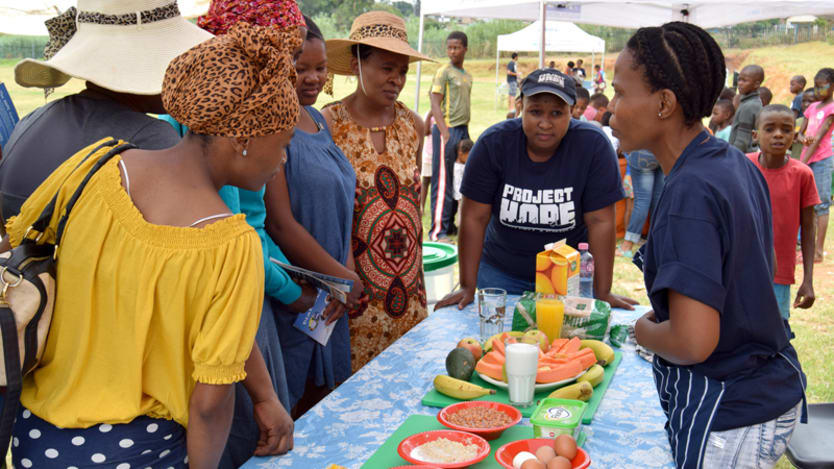
The world has grown tragically accustomed to public health emergencies.
From HIV and malaria to bird flu and Ebola, the global health community has rightly mobilized again and again over recent decades to address crises with high stakes and short time horizons.
As the 69th annual World Health Assembly convenes in Geneva this week, leading doctors and diplomats will leverage their collective brain power and bureaucratic influence to stop yet another urgent emergency: the Zika virus and its accompanying threat of microcephaly.
Still, in the coming years, the greatest public health crisis in terms of cumulative impact on lives and livelihoods may look more like a slow burn than a raging inferno.
As deaths from infectious diseases thankfully decline and the sedentary lifestyles, smoking habits, and packaged-product diets take hold in developing countries, noncommunicable diseases — including diabetes, heart disease and various forms of cancer — are spreading steadily. In South Africa, for example, NCDs are already responsible for 40 percent of deaths, and, across the continent, this class of disease is projected to become the leading cause of death by 2030. The situation is similar in scores of underequipped countries around the world.
Governments and global health officials face an increasingly pressing strategic question: In an age of serious resource constraints, how can we best defend against disease-specific crises while fighting a broader, lower-profile but increasingly deadly range of NCDs? Some of the best answers defy traditional medical thinking.
A holistic approach
New holistic models of care can overcome certain health system gaps. Consider the work of the HOPE Center located in an informal settlement of about 80,000 people on the outskirts of Johannesburg, South Africa. In addition to conducting more than 10,000 diabetes and hypertension screenings and training community health workers and volunteers over the past four years, the center has sought to strengthen the overall health system through wraparound services that might seem like a stretch for a global health operation. These include cooking classes, a gardening project, exercise activities, wellness educational seminars, and a village savings and financial literacy program.
Read related stories:
► 5 WHO reforms at the 69th World Health Assembly
► Inside the World Bank's Pandemic Emergency Facility
► Will Zika see 'big private sector action'?
► At WHO's Western Pacific office, 'sitting is the new smoking'
A recent sampling of initial findings showed that considerably more patients achieved target blood pressure levels, more reached target cholesterol levels, and more patients showed maintenance of weight as opposed to weight gain. These initial findings are promising, and the hope is that if proven cost effective, the South African government will replicate this in other areas.
But what’s impressive about this system-focused approach isn’t just its impact on NCDs like diabetes and hypertension. It’s the potential for preventing or curbing future acute public health crises of the sort that make global headlines.
By embedding people in a network of education, communication, wellness resources, and support, integrated projects can make communities more prepared and resilient in the face of other challenges. Successful interventions to address any particular health crisis necessarily rest on the general strength of the health system, and diverse factors from education to nutrition to savings are indispensable to any health system’s true strength.
Lessons learned: 4 ways to tackle NCDs
The experience of Project HOPE in South Africa underscores important lessons for development and public health practitioners seeking to address NCDs in the age of high-profile health crises.
1. An ounce of prevention really is worth a pound of cure: Early interventions can help stop the onset of costly chronic diseases. Efforts to address the underlying factors that hasten the spread of NCDs — from tobacco and alcohol to excessive salt and limited physical activity — are inexpensive by public health standards.
2. It is essential to target broader factors that underlie well-being from food to financial planning in order to take on multifaceted challenges like NCDs. This can be challenging for some practitioners who are trained and accustomed to operating within certain boundaries, but addressing such diverse elements of health can not only improve the efficacy of traditional efforts but also potentially carry ancillary benefits like improved economic development in a community.
3. Community-based efforts toward health-systems strengthening can and should have an eye toward improving resilience and response to acute crises. Integrated approaches to person-centric care are important to test and prove effective in balancing communicable and noncommunicable diseases. Point of care monitoring can impact patient outcomes.
4. Consideration of a variety of partners — from private sector to civil society to public sector — increases the likelihood of thorough project conception, robust needs based planning and effective implementation. In building closer bonds with community institutions, improving basic health education, and increasing general wellness, we can also take important steps toward addressing headline health risks.
Leaders are coming around to these ideas. Amidst the constant pressure of managing high-profile global health crises, the World Health Organization has — to its credit — prioritized addressing NCDs in recent years. It recognizes that addressing NCDs is among the most cost-effective ways to save lives. Cardiovascular diseases, diabetes, cancer and respiratory diseases are not only causes of disability but also place enormous demands on health systems.
While perhaps an overused term, “best practices” matter—they can inform and inspire new thinking and action. So as the world’s medical and public health leaders meet in Geneva to plan policies and investments, it is crucial that they give due attention to strategies stemming from civil society and the private sector.
Join the Devex community and access more in-depth analysis, breaking news and business advice — and a host of other services — on international development, humanitarian aid and global health.








